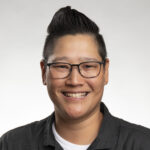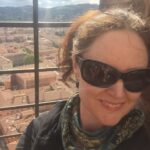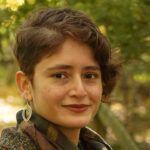
- This event has passed.
Webinar: How we see water: Developing a transdisciplinary course through a local lens
January 31 @ 2:00 pm - 3:00 pm EST
Human activity has contributed to climate change and environmental degradation. As a result, our freshwater supplies are facing a major threat. Water is vital for life. It is our responsibility to ensure that our freshwater resources are protected so that all life may endure. The Freshwater Collaborative of Wisconsin is committed to doing its part in order to mobilize the state into action and become a global leader in freshwater sustainability. The collaborative is working with the 13 University of Wisconsin institutions and the Wisconsin Idea to actively build a network that stretches beyond the state’s borders, promoting education, responsible stewardship, and job creation. The University of Wisconsin – River Falls received grant funding from the collaborative and worked over the summer of 2022 to design a transdisciplinary course on the social, cultural, environmental, and economic impacts on freshwater accessibility and protection. The course, titled, “How We See Water,” was piloted spring semester 2023. The purpose of the course was to critically examine how people interact with water. Using a co-instructional design, lead faculty from social work, journalism and communication studies, agricultural engineering, and agricultural law brought students in from a variety of different programs across campus to learn about our local watershed, and investigate the environmental, economic, and social implications of dams, water usage, and current issues in water quality, pollution, and water resource regulation. The students also explored historical traditions of water stewardship and the sacred relationship of Indigenous peoples with water. The course was designed around 7 guiding questions that helped students move from intrapersonal and reflective to synthesis and application through community engagement on a water issue specific to our community. In this workshop we will share our processes in moving this course from a conceptual idea to the pilot. This includes issue identification, pedagogical considerations in teaching and learning with respect to high-impact teaching practices and actively engaged learning activities, and future directions of the course. Our hope is that what we share may inspire others to develop a transdisciplinary sustainability course on their campus, and provide tools on how to effectively do so.
For members: archived webinars on demand Upcoming webinars
Presenters
 |
Shawyn Domyancich-Lee, Assistant Professor, Social Work Department, University of Wisconsin – River Falls Dr. Shawyn Domyancich-Lee is an assistant professor in the Social Work Department at the University of Wisconsin – River Falls. As a Korean adoptee Dr. Domyancich-Lee’s research has focused on attachment and adoption. This has opened up avenues into place-based attachment, especially as it relates to place and space and notions of “home.” From this Dr. Domyancich-Lee created and taught the first environmental justice course in their department and has shared their expertise with other students and colleagues across campus in a transdisciplinary course on freshwater sustainability. Drawing on the significance of place from socio-cultural, political, and religious and spiritual frameworks, Dr. Domyancich-Lee uses an intersectional approach to illustrate the connection of all things in our physical natural world, and how the dynamics of power, privilege, and oppression impact the environment and the natural world and people’s relationship with it. |
 |
Tovah Flygare, Adjunct Instructor, Agricultural Economics Department, Sustainability Office, University of Wisconsin – River Falls Tovah Flygare, JD, is a licensed attorney, and has a background in community action, systems thinking, law, and clinical practicum/experiential learning development. Flygare is a St. Croix Master Watershed Steward, a yoga instructor, a Grow to Share community gardens board member, and teaches classes at the University of Wisconsin – River Falls. Flygare also works in the Office of Sustainability on campus. |
 |
Grace Coggio, Associate Professor, Sustainability Fellow, Interim Department Chair, Communications & Media Studies Department, University of Wisconsin – River Falls Grace L. Coggio is an associate professor of communication studies at the University of Wisconsin – River Falls, teaching courses in business and intercultural communication, as well as sustainable justice. She is currently serving as Sustainability Fellow with a focus on infusing sustainability across the curriculum. Additionally, Grace often leads student study abroad programs in Europe. Her research interests include innovation diffusion across cultures and intercultural communication via collaborative technologies (i.e., global virtual teams). |
 |
Souzeina Mushtaq, Assistant Professor (Visiting), Communications and Media Studies Department, University of Wisconsin – River Falls Dr. Souzeina Mushtaq is an educator and photographer based in New York City. She currently teaches journalism at the University of Wisconsin – River Falls. Her research focuses on queer Muslim women and their intersecting identities. She also worked as a journalist in multiple capacities as a reporter, editor, and television host in Kashmir and New Delhi. Dr. Mushtaq’s current photography project is a visual ethnography of the Yamuna River, one of the two most sacred rivers in Vedic literature for thousands of years. Her images capture the human contradictions of deep spirituality and environmental indifference toward a river celebrated since ancient times, and that is now heavily polluted. |